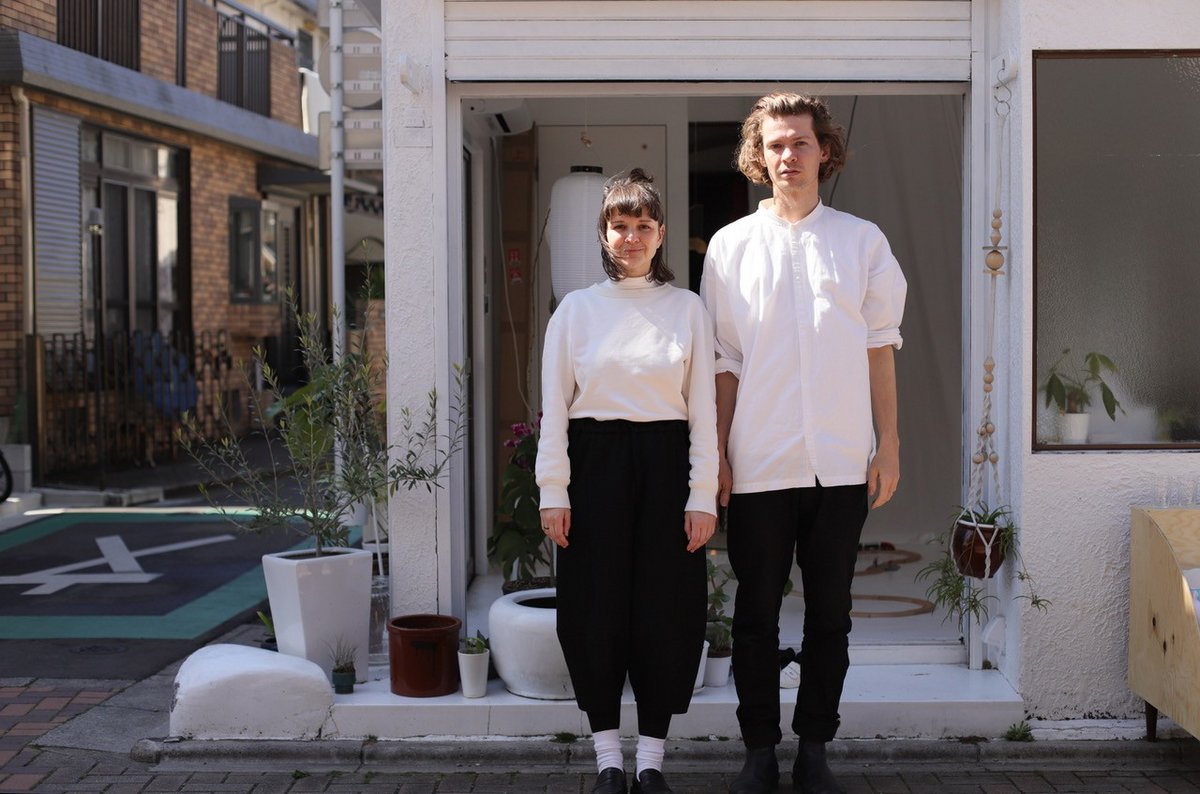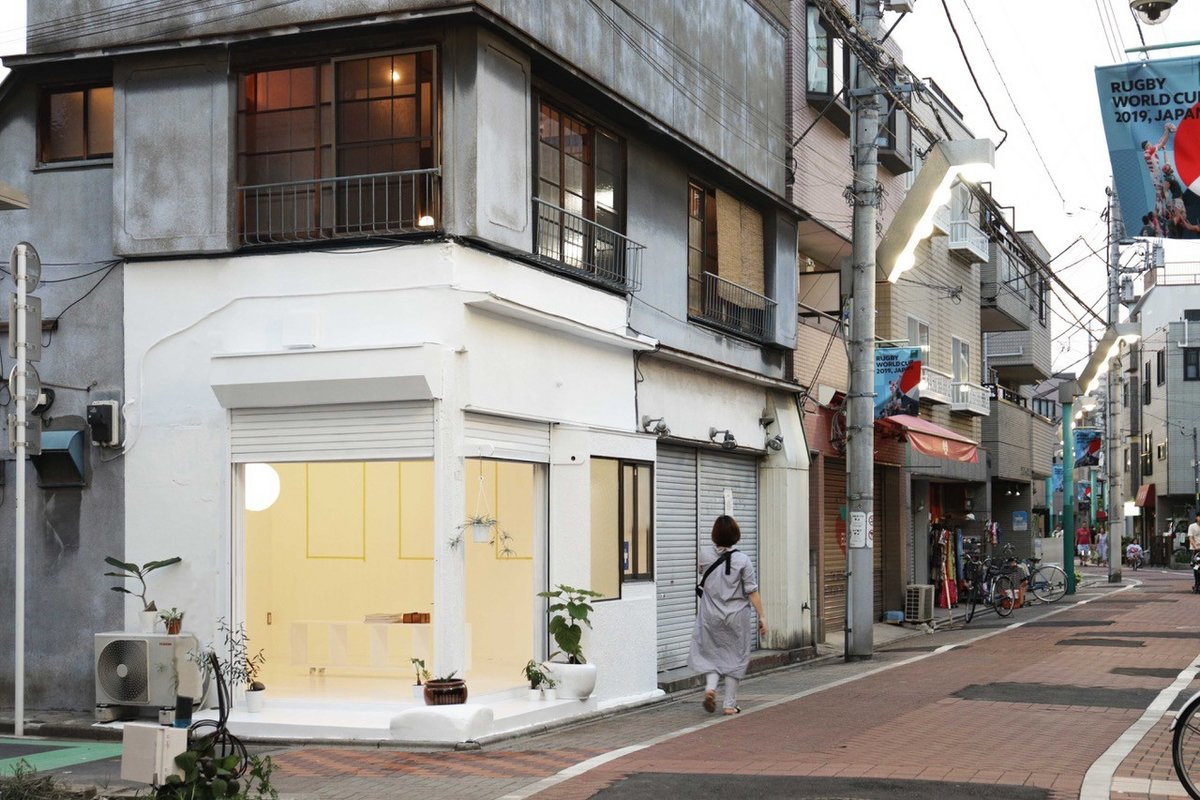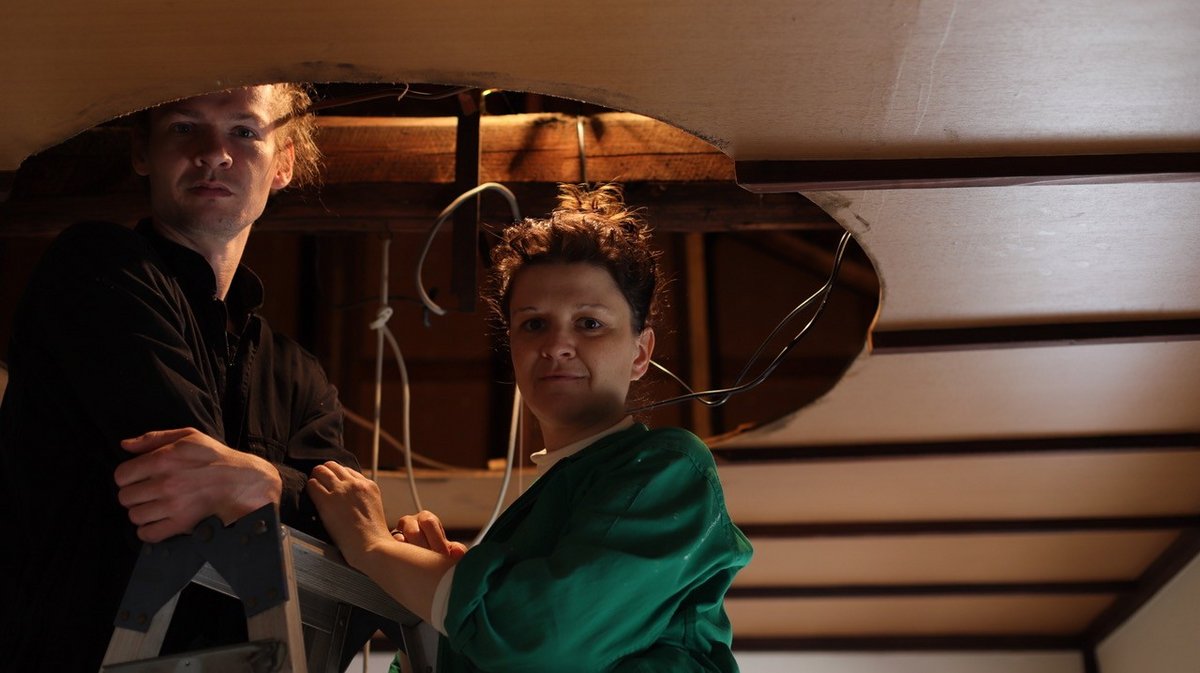From Cottbus to Tokyo - Two BTU alumni talk about their journey to Japan and their self-employment
You studied at the Brandenburg University of Technology Cottbus-Senftenberg (BTU). What exactly did you study?
Anne Groß: We both studied Architecture at BTU - I started on the Diploma programme in 2004, Sebastian on the Bachelor's programme in 2005. We spent a year abroad together in Japan in 2008/2009. We started our Masters in Architecture in 2010, taking part in the Master's programme Architecture.Studium.Generale. In 2012, I graduated with a Diploma and a Master's degree, Sebastian with a Master's degree.
What features or advantages of studying at BTU particularly impressed you?
Anne Groß: What we particularly appreciated about studying at the BTU in Cottbus was the working environment. Especially in Architecture, it is important to have large work areas and free access to workshops and printing services. The computer suites were also a great advantage - students without powerful computers were still able to take part in the rendering course.
We particularly credit the university for placing so much trust in us and giving us 24-hour access to the studio spaces.
You went to Japan after your studies. How did you take this step and why did you decide to do so?
Sebastian Groß: We went to Japan in 2016 with a very generous scholarship from the DAAD. The programme is called "Language and Practice in Japan" and has been running for many years.
Anne was part of the 33rd cohort. The scholarship enabled us to spend a year and a half in Japan, including intensive language training and an internship of our choice. Because of this opportunity, we quit our jobs in Berlin and initially went to Japan for a limited period of time.
It wasn't originally planned that we would still be living here today - it was more a result of good constellations and exciting projects.
You then set up your own studio, GROSS, in Tokyo. What are you focussing on with it?
Sebastian Groß: We founded Studio GROSS in 2019. It is a multifaceted office that focuses on Architecture, Film and Curation with a strong emphasis on neighbourhood work. We initially curated a small exhibition space, which brought us into close contact with the neighbourhood. This resulted in the first refurbishment projects. At the same time, Anne brought in her passion for photography and film, which led to international collaborations with a strong connection to Japan.
Starting from this physical location, Studio GROSS gradually developed into a professional studio. Today, we still curate exhibitions in our space and are currently expanding our activities with a small residency programme that is also anchored in our neighbourhood.
You are now familiar with life in both Germany and Japan. Where do you see the biggest differences between the two countries?
Anne Groß: In Japan, we ventured into self-employment - a completely different experience to our previous jobs. Self-employment brings a lot of freedom, especially when it comes to organising your work schedule, but it also brings uncertainty, as you have to fight for your own right to exist again and again, especially abroad. Nevertheless, we have managed to do this for nine years now, and we are planning to apply for permanent residency next year. We want to be firmly rooted in Tokyo, without forgetting our second mainstay in Berlin, where we have been developing small projects since this year.
Looking back, we would hardly have dared to become independent in Germany. Because while we had never felt such a response to our work in Berlin, it was different in Japan: our work was appreciated here from the very beginning - something that also says a lot about the culture of the collective. This recognition ultimately helped us to become independent.
Is there anything else you would like to tell us?
Anne and Sebastian Groß: Our son was born in 2018 - an experience that has had a decisive impact on our lives here. We would like to mention him because he played a major role in giving us the confidence to become independent and set up Studio GROSS. We were aware that the work ethic in Japan is even more demanding than in Germany. While a 40-hour week there is already a challenge for both parents, a 60-hour week is a reality in many industries here. Under these conditions, it would have been impossible for us to reconcile work and family life on an equal footing.
This is precisely why we are grateful that self-employment allows us to harmonise work and parenting. We experience every day how valuable it is to share responsibility as partners - both for the family and for work.



